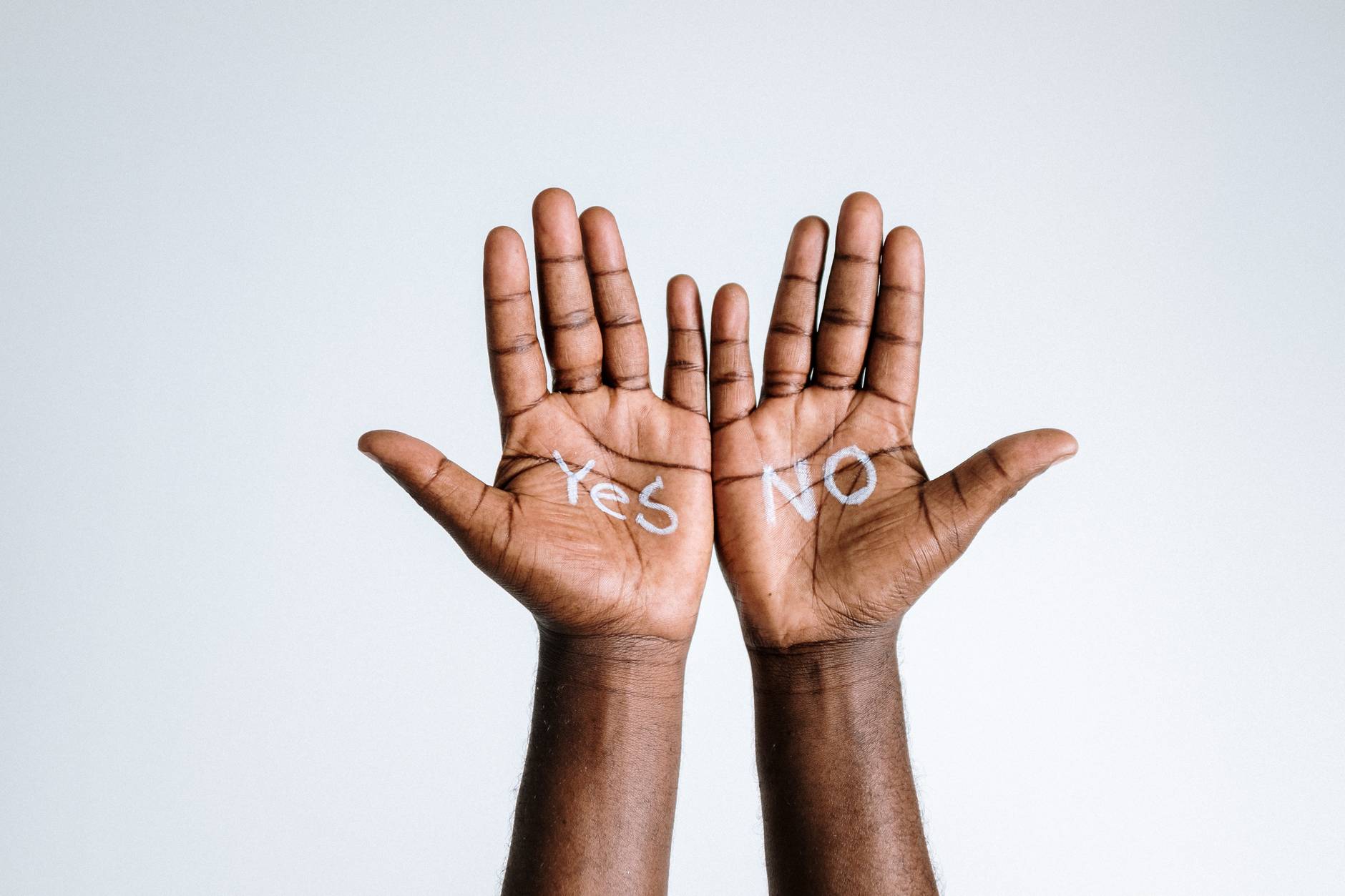Are you what others would call a “people pleaser?” Do you say “Yes” to every favor or request that is asked of you? Or do you spend a great deal of time doing things for other people, making all the plans, and always being there for them — all on top of (and at the expense of) your own needs and work?
You may think that being always helpful and accommodating makes you a good person, but in reality it is an unhealthy pattern of behavior. Podcaster Danah Gutierrez of “R & R with Danah and Stacy” (@thedanahsoars) even describes the behavior as “dangerous.” “There are many negative effects from saying ‘yes’ all the time,” she says. “You will be more tired, stressed, and irritable, and increase your risk of getting burned out. But more importantly, you will resent the person asking you for the favor, which will damage your relationship in the long run.”
But many of us fear saying “No” because we worry that the other person will be disappointed or angry with us, or think we are rude or unkind. In such cases, Danah reminds us that while there is nothing wrong with wanting to maintain amicable relationships, we should not do so at the expense of our own mental health. “Saying ‘no’ also means saying ‘yes’ to yourself,” she points out. When done right, “No” can help you build better relationships and free you up to do the things that matter to you, like spending more time with your family or focusing on self-care.

If saying “No” is a struggle, Danah recommends some ways you can start trying:
- Accept that you cannot do everything. Even Superman cannot be in two places at once. If you take on multiple tasks, especially at the request of other people, you will only end up stretching yourself too thin and unable to give your best to any of your commitments.
Also, If you find yourself saying “yes” all the time, especially when it comes to work, Danah says it could be a sign that you do not trust other people, which is also not a good trait to have.
- Enforce your boundaries. Boundaries are defined as the emotional and mental space between you and another person. In order to establish boundaries in a relationship, you need to be clear with the other person about who you are, what you want, your beliefs and values, and especially your limits. “It’s your responsibility to communicate these limits to others because people are not mind readers,” Danah points out. “So if someone asks something of you but your plate is full at the moment, then say so; and if you really value the relationship, say what you can do for them the next time you are more available.”

Danah also recounts an experience involving a friend whose boss wanted to pile more work on her; what the friend did was present an Excel chart to the boss detailing the amount of work that she was already doing. “When the boss was faced with such measurable facts, he backed off and asked someone else to do it,” she says.
3. Be polite but direct. Say “No” in a friendly and respectful way. Do you want to decline an invitation to a party? Just reply with a simple “Thank you for the invitation but I’m afraid I already have plans.” Is a co-worker expecting you to take on extra work? You can say “Thank you for the opportunity but I don’t think it’s something I can take on right now.” “There’s no need to make the conversation dramatic, just get straight to the point,” Danah advises.
4. Don’t make excuses or apologize. Don’t say “I’ll think about it” if you don’t really want to do it. This will just prolong the situation and make you feel even more stressed. Neither should you say sorry because all the more it will reinforce the feeling that you did something wrong by saying “No.”
5. Know that you can’t please everyone. Trying to make everyone happy is literally impossible and only guarantees that you will experience stress, frustration, and guilt. You may worry that people will be angry or disappointed in you, but odds are the majority will be fine with your decision.
And if the other person DOES get mad at you for saying “no,” Danah suggests you respond by gently saying “I trust/love you enough to express my boundaries and I was hoping you would respect them. When you react this way, it lessens my trust in you.” “If the other person reacts badly, it’s time to assess the relationship,” Danah says. “Is it even healthy for you to continue to be in a relationship with a person who keeps pushing your boundaries even if you are communicating it nicely?”

Like all other skills, knowing when to say “No” and having the courage to say it will take time to learn. Keep practicing it, starting with people whom you know to be understanding and trustworthy, so that you are able to say it more comfortably in other situations. Remember that once you stop saying “Yes” to every little request made of you, you prioritize more effectively, become more efficient, save time, and decrease stress. In saying “No,” you are modelling good self-care to those around you.
—
Written by Jac of MindNation

